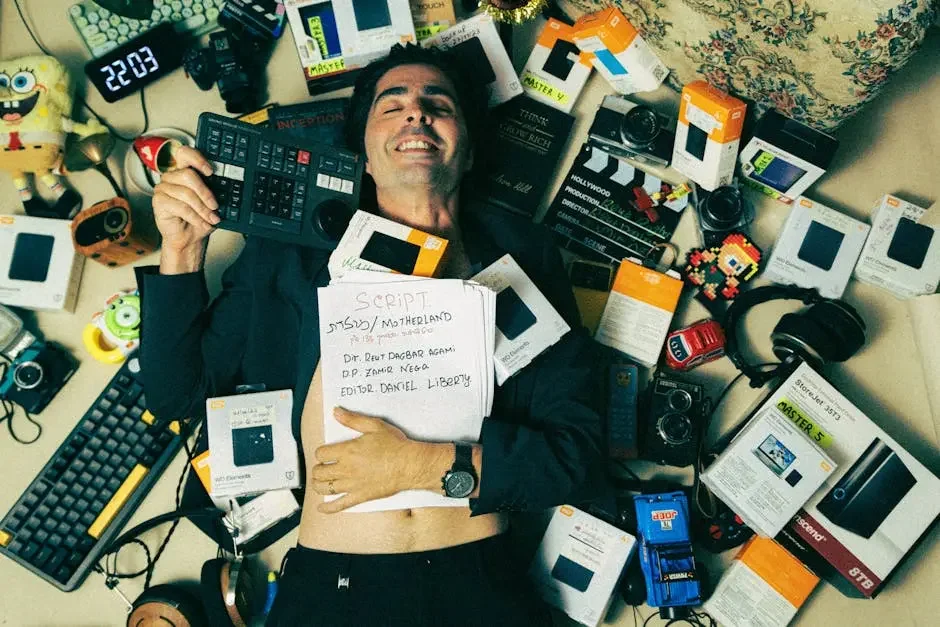10 Essentials for Mastering Film Editing Courses Online
Are you ready to take your film editing skills to the next level? Whether you're a budding filmmaker or just looking to enhance your storytelling abilities, mastering online film editing courses can open up a world of creativity and technical prowess. In this blog, we'll explore ten essential elements you need to succeed in your film editing journey. Let’s dive in!
1. Choosing the Right Software for Your Needs
Understanding the various film editing software available is crucial. Each tool has its strengths and weaknesses, so it's important to find one that fits your style and project requirements.
For instance, if you're new to editing, you might consider beginner-friendly options like Adobe Premiere Elements or iMovie. These programs offer intuitive interfaces that make learning the basics a breeze.
On the other hand, if you're looking for advanced features, tools like Final Cut Pro or Adobe Premiere Pro may be more to your liking. These programs come with a steeper learning curve, but they offer unparalleled control over your editing process.
2. Understanding Basic Editing Terminology
Familiarizing yourself with editing terms will enhance your learning experience and allow you to communicate effectively with other filmmakers. Start with foundational concepts like 'cut', 'transition', and 'timeline'.
As you delve deeper, you’ll encounter terms like 'keyframe', 'compositing', and 'aspect ratio'. Understanding these concepts will not only boost your confidence but also help you get the most from your film editing courses. Want to impress your peers? Sprinkle some terminology into your discussions!
3. The Importance of Storytelling in Editing
Editing is not just about cutting footage together; it's about enhancing the story. Learn how to shape narratives through your edits. Each cut should serve a purpose, whether it’s heightening tension, adding humor, or smoothing over transitions.
In fact, the best editors approach their craft as storytellers. They understand that every decision—like what to omit and what to highlight—directly impacts how audiences perceive the narrative. Keep this in mind as you learn: your edits are tools to guide your viewers' emotions and narrative understanding.
4. Exploring Different Editing Techniques
Get to know various editing techniques such as jump cuts, cross-cutting, and montage to create dynamic sequences that engage your audience. Jump cuts can be used to maintain a fast pace, while cross-cutting can build suspense by showing two scenes happening simultaneously.
Don't shy away from experimenting! Use montages to condense time or illustrate character development. The beauty of mastering these techniques is they can be applied across genres, from documentaries to action films. Feel free to play around—your imagination is the only limit!
5. Mastering Color Correction and Grading
Color can transform a scene. Understanding color correction and grading will allow you to create the right mood and atmosphere for your films. Start by learning the basics: correcting imperfections in lighting and color balance to ensure your footage looks its best.
Once you've got the hang of correction, dive into grading. This process is where you can bring your unique style to life, setting the tone for each scene. Think about how a chill blue palette can evoke a sense of sorrow, while vibrant colors can make your film feel energetic and alive.
6. Crafting Effective Sound Design
Sound plays a vital role in storytelling. Learn about sound effects, voiceovers, and overall audio editing to elevate your films. Don't underestimate the power of sound; it can evoke feelings, enhance immersion, and even drive the narrative.
As you edit, pay attention to audio levels and clarity. Dirty audio can ruin an otherwise perfect edit. Utilize tools within your film editing software to clean up sound and incorporate elements like ambient noise and music, which can complement visual storytelling beautifully.
7. Utilizing Visual Effects Wisely
Visual effects can enhance a film when used correctly. Familiarize yourself with basic VFX techniques to expand your storytelling palette. While they can look stunning, it's essential to remember that effects should serve the story and not distract from it.
Experiment with simple effects like fades and overlays first, then gradually take on more complex designs. You’ll find that as your confidence grows, so does your ability to create believable and engaging visual effects that truly elevate your narrative.
8. Practicing Regularly to Hone Your Skills
Like any art form, practice is essential. Regularly working on your editing skills will lead to improvement and confidence. Treat your editing software like an instrument; the more you play, the better you become.
Set personal projects that challenge you. Aim to recreate a scene from your favorite film or experiment with different editing styles. Each completed project brings you one step closer to mastering your craft, and the journey itself is half the fun!
9. Finding Online Communities for Support and Feedback
Engage with online film editing communities for support, feedback, and collaboration. Sharing your work can lead to valuable insights and new friendships. There’s plenty of discussion forums, social media groups, and even platforms like Discord where editors come together.
Don't just lurk; participate actively! Ask for critiques on your projects, provide feedback to others, and build your network. These communities can be invaluable for personal and professional growth, opening doors to learning that online courses may not provide.
10. Staying Updated with Industry Trends
The film industry is constantly evolving, and so are editing techniques and technologies. Keep learning to stay ahead of the curve. Subscribe to industry newsletters, follow influential filmmakers on social media, and attend webinars or workshops.
Understanding what's trending in film can directly inform your editing style. Whether it’s the resurgence of a particular genre or new technology like virtual reality, staying informed will keep your skills relevant and marketable. Make it a habit to dedicate some time each week to educate yourself about the latest in film editing!
